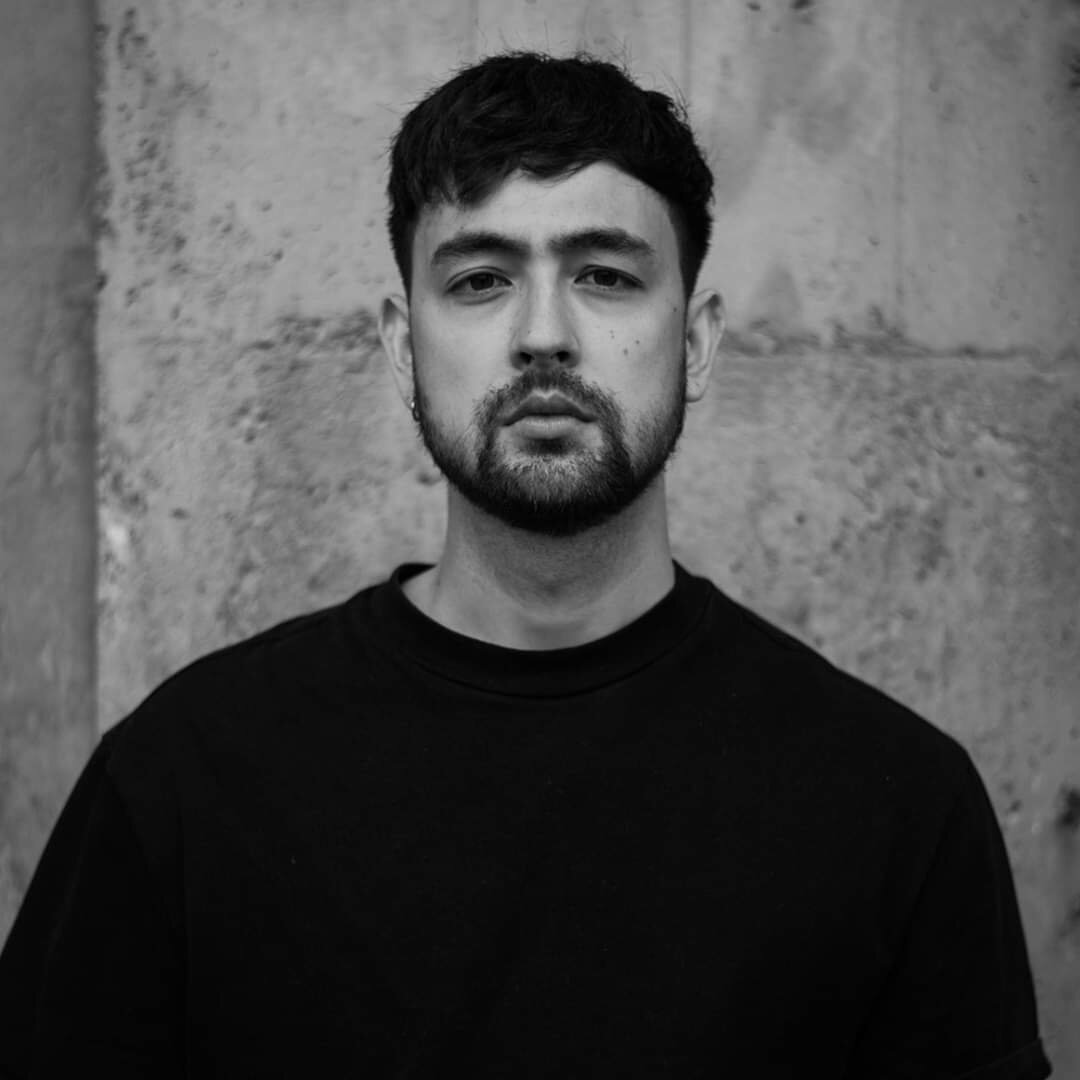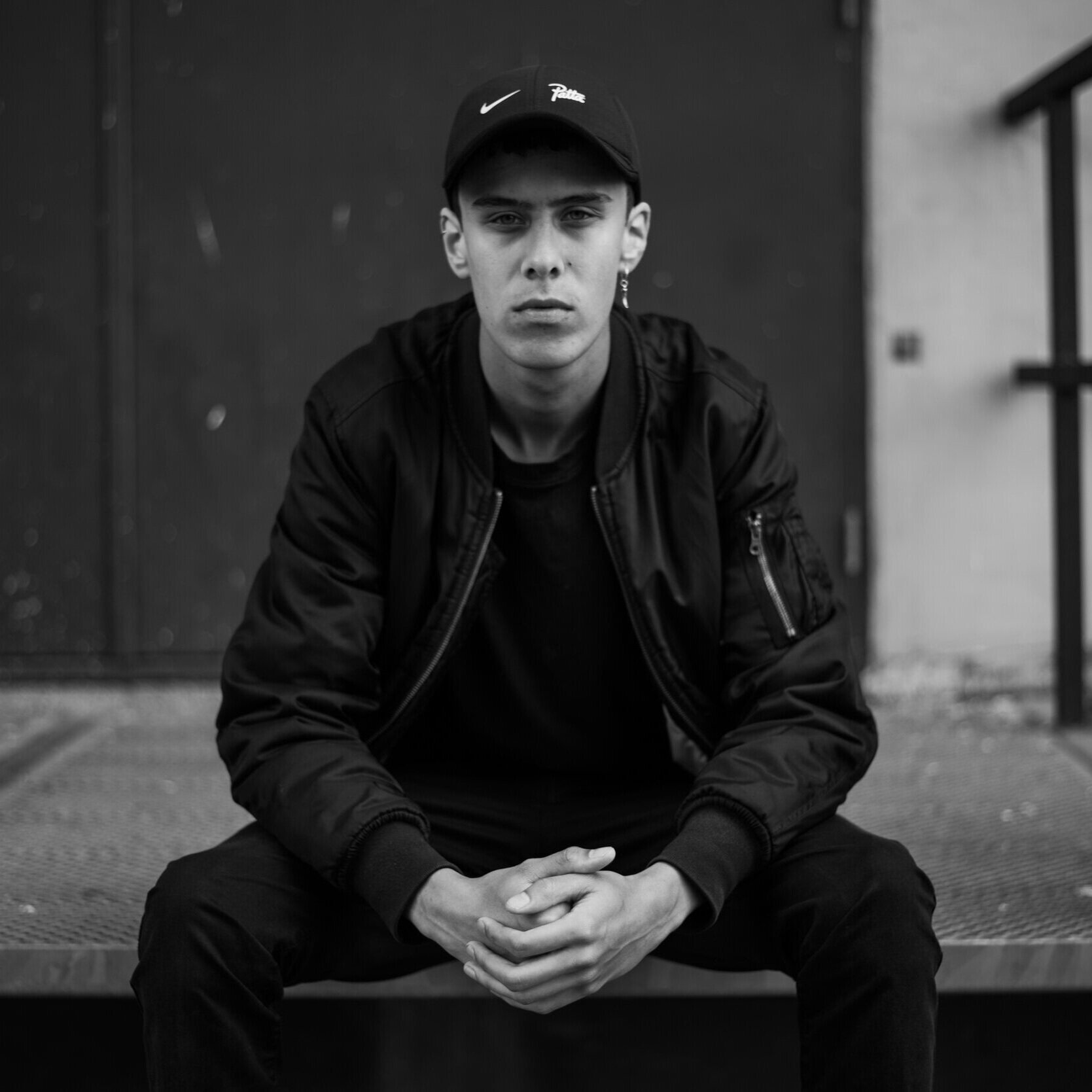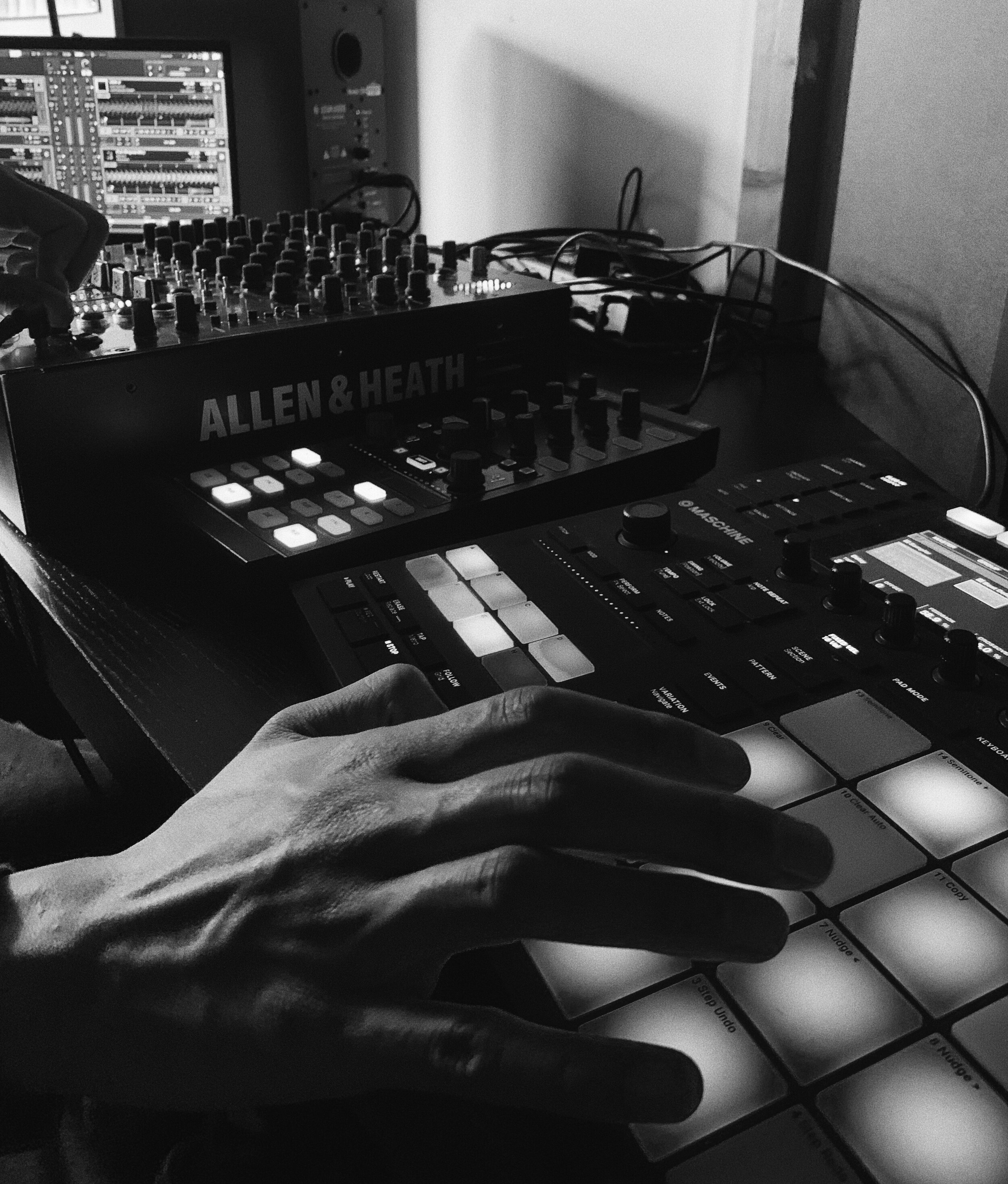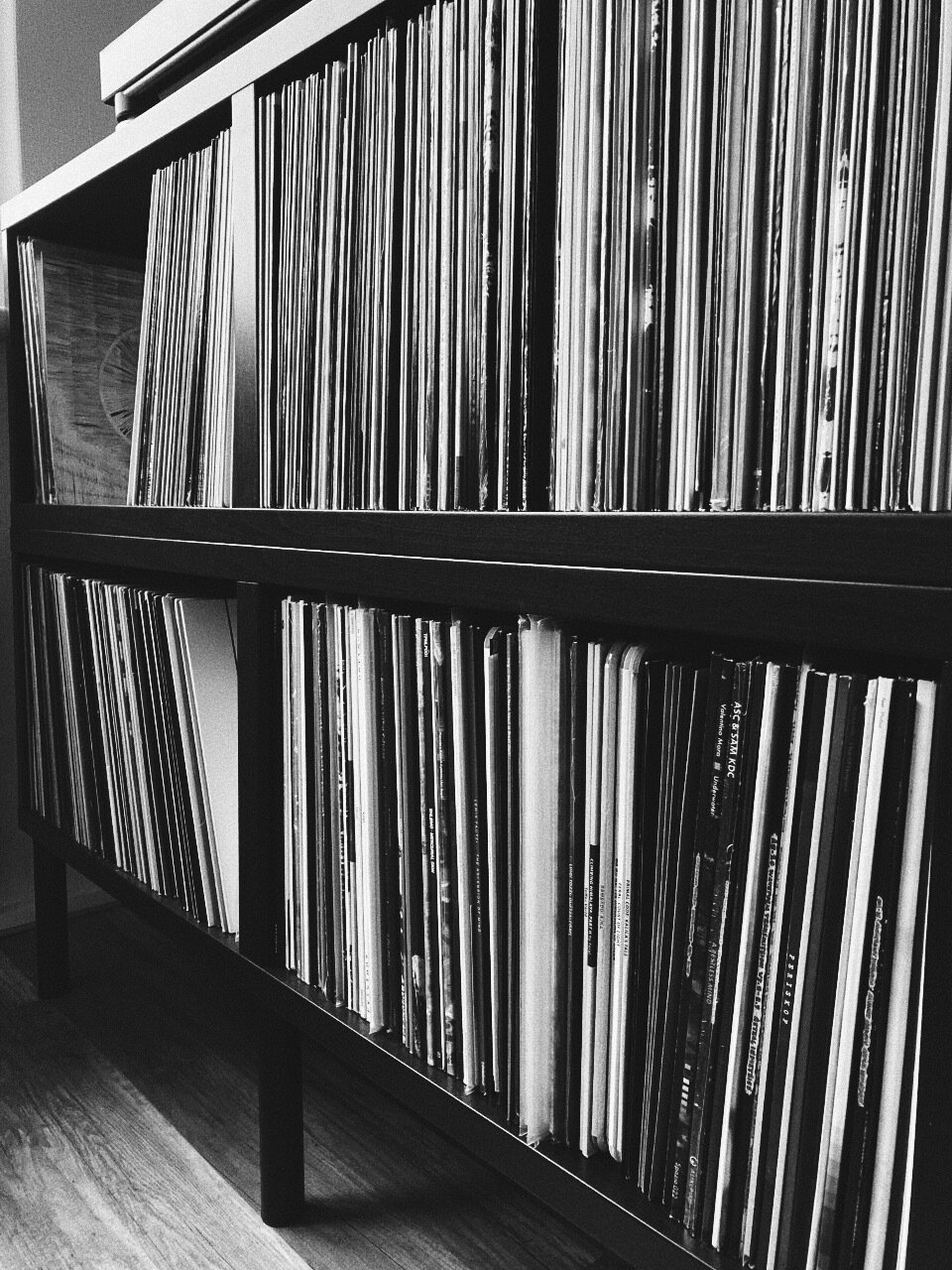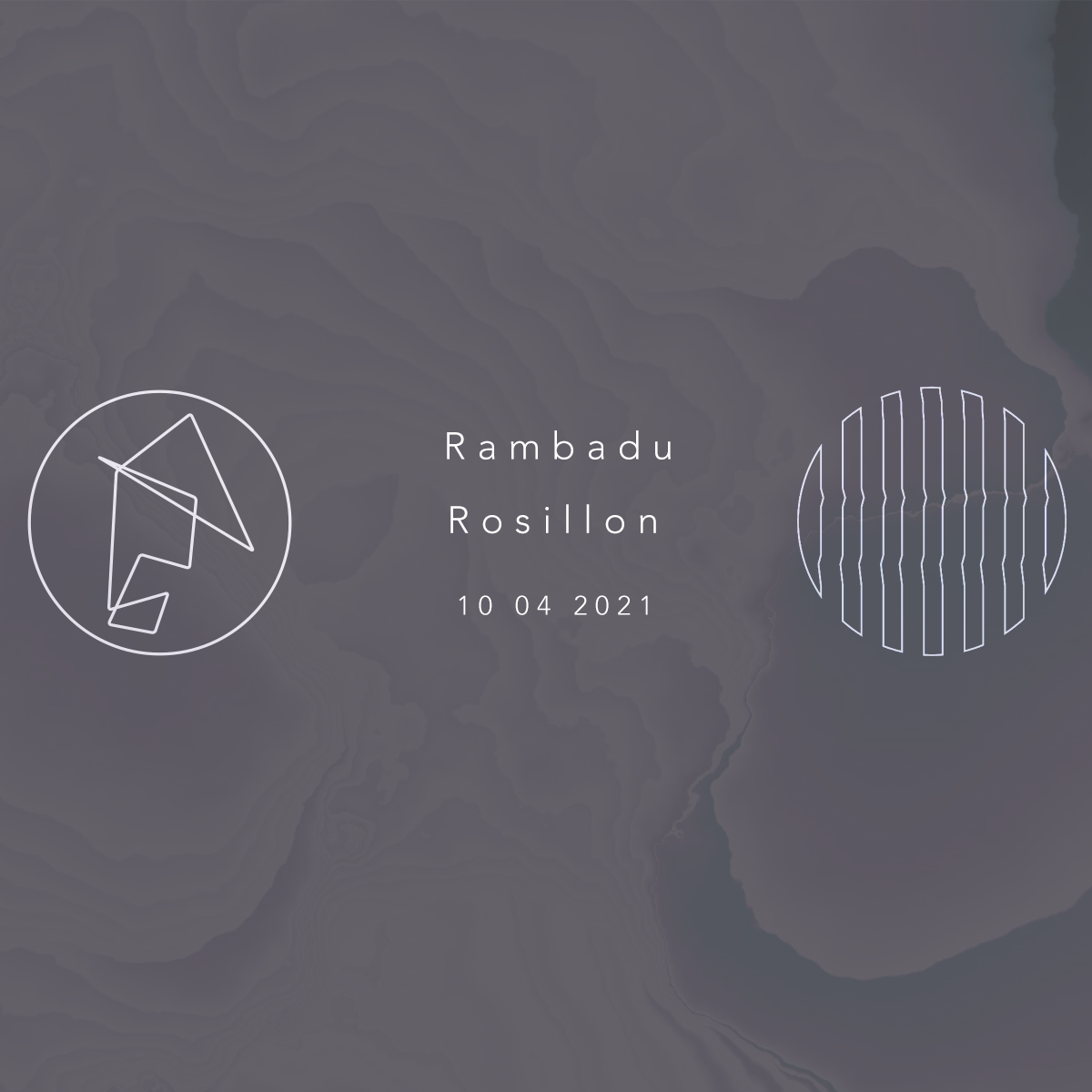Community: Embodiment
The rotterdam-based event organization that thrives on strong values, critical thinking, and immense passion for music, is here to break stigmas and make genuine contributions
It’s the end of August and sadly Summer has almost left Berlin! I hope everyone had a bit of fun the past two months and really managed to enjoy life and music again. Even though summers aren’t what they used to be, I am here to contribute to your good mood with the next feature in my blog. After presenting you some really cool labels in the past few months, I thought it was high time to change the topic and take a look at our Community again. There is so much to discover, and so many great likeminded people to connect with, and I feel that it is my duty to facilitate that process.
Today my focus is on a very special organization, that I had the pleasure to get to know really well since the beginning of the pandemic in 2020. Based in Rotterdam, The Netherlands, Embodiment is a rave that is fuelled by the vision of people, who are dedicated to the dance floor. A vision in which both the artist and the dancers are pushed to the very limit to create the most intense and cohesive vibe throughout. The crew consists of 8 dedicated music lovers who together form a very pure organization. I had the chance to sit down for a chat with the founders Jerry and Camille, where we talked about the scene in Rotterdam, their mission, values and views on music and the industry, goals for the future and much more! Stick around to find out who is behind Embodiment and as always, to discover a lot of new amazing music!
The beginning, values and motivations
Camille Ferdinandus, also known as Rosillon is a Dutch DJ and Producer coming from Rotterdam. In day-to-day life Camille is actually a lawyer, but his love for music has brought him to have this double life and when the working day is done, his artistic self manifests and leads him into the creative world. Even though this balance is really important to him, he feels most himself when he is occupied with music and connecting with likeminded souls.
Jerry Visser is a serious presence, honest contributor and undoubtedly an important figure in the local Dutch electronic music scene. In his day-to-day life, Jerry is a family man who works as a carpenter. His journey in electronic music began about 9 years ago, when he was introduced to techno by a friend during a festival. ‘’I’m a very specific guy, and I can immediately decide if something is for me or not. Before that day, I never really searched for something that would fit me, but at that moment hearing this music I got addicted immediately. I thought ’There is a whole new part of myself to discover!’’ After that moment, Jerry dedicated a lot of his time and energy on getting to know and experiencing this world, making his own connections within the scene. Now 9 years later, we are sitting together to discuss one of his biggest achievements within electronic music – the creation of Embodiment.
Camille Ferdinandus & Jerry Visser
What brought Camille and Jerry together in the first place was actually a small community in Rotterdam called RT, created by Jerry himself. Throughout the years, his experiences and instincts led him to creating a group that is dedicated to the love for techno and the dancefloor. All of its members come from the dancefloor and are equipped with strong values, views and personal contributions to the scene. Within RT you can find DJs, producers, event organizers, creators, dancers, and genuinely engaged people who appreciate many and different aspects of our culture.
‘’It’s basically just a big group of friends, who all share the same passion – electronic music. We also share the same values in terms of how we were brought up by our families. We all have the same respect for one another, and in the same way we always look out for each other, which is a big point of this group. I started it 7 years ago together with my brother Nigel, who is now part of Embodiment as well, and 4 others. I was very eager to find more people with the same musical interests, and so the group started to grow. We would go out together and meet up on festivals etc and so it began.’’
Camille adds ‘’It’s a very open and safe space. You are always on your own journey, but it's so interesting to see that you actually meet so many people that are quite at the same journey, whether because they go to parties for the same time already, or they have experienced the same things. Despite the differences in taste or ways of thinking, there is a lot of respect between us all. Often there is room for jokes as well of course, but I think in the end, being part of this community really enriches everyone as they hear other views, and most of all we are in this together. I shared earlier about my double life – the formal and the creative side, and I think everyone has that in a way. When it comes to electronic music, well it is an artform, or at least the part that we like and are focused on anyway. Art forms are quite hard to understand by the outside world and people that are not involved with the topic in depth. Finding others that for once you don’t have to explain very normal things for you, is such a relief. RT is a tight collective within a larger community. It transcends above organizations or things, it’s a neutral place. ‘’
Listening to Camille and Jerry describe their Rotterdam-based community warms my heart and genuinely impresses me. It is so hard to create and maintain a big group of people that will remain constantly active and positive throughout time, especially when the starting point, was not a particular idea or a concept, but just purely friendship, a good conversation and a good time together. Obviously, this paints us the bigger picture around Embodiment, but it is time that I found out more about their organization in particular. Jerry goes on to share.
‘’The original idea came from me. When I first got in touch with music, I already knew that one day I would want to throw a party myself. I am a very prepared person and this comes from my father he always told me ‘’If you want to do something, give a 100% or don’t do it’’, and that’s actually my motivation in general in life. I was just gathering all the ingredients that I need, and RT for example is also an ingredient. You know how when you are growing into a culture, and you make connections and you build relationships, you are starting to go through all different phases within this culture. Six years ago, I didn’t know what I know now about the scene, or techno or music in technical terms. At the point when Camille joined RT, I instantly felt like we clicked on a deeper level. We also share the same humour, and I felt really comfortable. Camille is a very clever guy and he was giving me the things that I was missing in terms of knowledge, and we started learning a lot from each other. Two years ago, I already knew that he is down for it, so one day in 2019 there was going to be a DECODE event with a promising line up at Perron in Rotterdam. I knew the booker Paul Boex, and we spoke prior to the party and I told him ‘You are about to see the club tonight like you haven’t seen it before!’ – Obviously my confidence was coming from the fact that, I knew that our entire group will be there. This is how we started the conversation, and after the event, I asked him how he would feel about allowing us to organize something in Perron, and they were open and agreed on a meeting. I immediately texted Camille that this is happening and we need to put a concept together. So, we sat down and came up with everything, where Camille made sure to finalize it into a presentable format. It’s funny, because we went into this meeting very well prepared as always, but also a little nervous thinking that we will have to strongly defend our ideas, but in fact it was the opposite. Paul directly said ‘Okay guys we got to do this!’. This is how it all went down – no bullshit, just straightforward serious attitude.’’
I was curious about how did Camille feel once Jerry contacted him with the idea to be a co-founder? ‘’Over the moon of course! The connection has been mutual from the start. Me and him are really on the same journey when it comes to electronic music. Despite our musical differences sometimes, I still feel like those moments in which you have a profound realization about something, or just an epiphany, we are actually sharing those moments while also enriching each other a lot. Ever since the beginning of Embodiment, it’s a really good partnership.’’
The most important elements in a club night, professional approach, and the formation of the team
The idea of having one’s own party is always a romantic one, and I am sure that the majority of dedicated techno fans have been daydreaming about doing that in one way or another. Yet, very few people undertake the complicated task of designing a well-thought through concept, which has a certain meaning, and it isn’t just ‘the next techno event’ on the social calendar. Twenty minutes in our conversation, and I already got a pretty clear idea that these guys are very serious about what they do and the way they do it, so I couldn’t help but wonder, is their underlying desire for creating an event coming purely from wanting to contribute and do it in their own way, or is it also coming from a place where they are missing certain things in the scene as it is today, and wish to try and change that?
Jerry starts firmly ‘’Yes! As already mentioned, I am a very specific guy and I really know what I want and how I want it. If I go party somewhere, one or two elements are always missing, and all the guys in Embodiment share that.’’ I am immediately curious about examples of such elements? ‘’Sound is the main thing, but also the environment, you know the setting, the club.’’ Camille goes on to add
‘’It can even be really simple things that people don't even think about, for instance, how are you welcomed into the club. Imagine you go somewhere and it's very unpleasant, harsh already at the door, then you are like alright…People don't think ‘okay did this contribute to my experience on an evening, if the rest was good?’, but why wouldn't it? Everything is important in an evening, and basically there was always something that would annoy us and we would talk about it. I think this is where a core value of Embodiment manifests: We are all guys that are looking for something else. I wouldn’t say we know it better, but we know it differently, and we have another approach to certain things, which seem insignificant to others. We noticed that with the experiences we’ve had, compared to what we want, in the end is not so easy to find. One place that could deliver a lot for us, in a purist sense, that was De School, but in many other places we would always have this moment of ‘It’s good, but it would have been so much better if…’’. Jerry steps in to add ‘’I think in Holland, one of the main things that are happening is that a lot of organizations create events mostly from the ‘organizer’s point of view’, and with Embodiment we always think about organizing the event from a point of view that ‘we are there on the dancefloor ourselves’. That is the main thing.’’
I am quite intrigued to learn about this approach, because back in 2018, when I created my Nachtblumen event, I actually approached it in the same way. I put myself there in the middle of the dancefloor and though about each detail from a visitor’s point of view and did things the way I would like them if I would just be going out, instead of organizing everything based on assumptions of how I think people might like it. Needless to say, it was actually a very successful evening, which definitely cemented my view that this approach leads to a better overall experience. I am extremely happy that there are people like the guys from Embodiment out there, that choose their starting point to be different, which in turn ensures for a more special atmosphere and an unforgettable experience.
Camille: ‘’We look for that very specific group. We really believe that there is a big group of people that actually goes to all events, like we do, but in fact they really want to be challenged. This is also a big point within Embodiment, we want to be challenged by the music and are not interested in listening to artists that have been booked 10 times within the last two months. Booking someone else is always a risk for promoters, and a lot of them don’t dare to take this kind of risk. In a way we understand why, but one has to ask themselves the question ‘What do you want to do? Do you really want to contribute to something you love, or you just want to consume and fill your own pocket because you are booking the same artists over and over again that guarantee you a sold-out event every time?’ ‘’ I couldn’t agree more with Camille, but unfortunately this kind of ‘stigma’ is something we see globally in the techno scene. Safe bets from promoters everywhere, instead of trying to support and build up new talent, or artists within niche sub-genres of techno, or simply artists that are not so popular on social media. Yes, you read it right, nowadays apparently the ‘social ranking’ is also a factor when it comes to bookings for events, which honestly can be only described as absurd in my humble opinion, because it shows that we have clearly forgotten and neglected what truly matters when it comes to curating a line up. Jerry continues ‘’It’s not only the artists, it’s all the things! If I were a guest at our own party, it’s got to be perfect. From entering the door, you have to feel that you are stepping into something serious. There needs to be a little bit of that tension that it is not just a party, this is Embodiment and these guys are in it for the right reasons. That’s the whole essence of techno in my view, it’s not only the music, it’s all these specific things together. With a lot of organizations, you see that they are creating some sort of a ‘script’ and their starting point is techno and they are trying to create moments which are kind of directed already. For us techno is not a starting point, it’s an endeavour. You don’t start from it, you try to create it during the night. It’s not something that is just going to happen, that’s not techno. It has to come from the people on the dancefloor, and all the elements together. The sound has to be perfect, the lights have to fit the music, the DJ has to be on his or her best game but he or she should be feeling that as well – that it’s a serious business playing there, and not just another gig.’’
Camille: ‘’We don’t guarantee that we will always deliver techno, because if there is no unpredictability then this whole concept wouldn’t work and we would be just ‘working by a script’ as well and that would be boring. What we try to do is to actually facilitate. We think about all the elements that we need for our ideal club night and then it’s up to the moment. Maybe in one event it will happen, but the next one it won’t. I think that this is a really interesting way to think about it, because in the end it is something that is actually alive.’’ and interactive if I may add. Having gotten a glimpse into the Embodiment philosophy of doing things, I am curious what was the process of gathering the team and distributing responsibility?
‘‘What we try to do is to actually facilitate. We think about all the elements that we need for our ideal club night and then it’s up to the moment.’’
Jerry starts ‘’It is all based on feelings. You know people’s strong points, and you know their enthusiasm, but they still have to do the work. Our team is almost the same as we started - Camille, Sem, Victor, Job, Jeroen, Jefta, and my brother Nigel, who has been a life-long sparring partner of mine, and our mutual journey in music has strongly shaped my vision about the organization. It’s not that we are looking for a specific kind of person to perform a task, it’s the opposite. If we believe that they share the same values, and the specific taste in techno, then we find a way for them to contribute. For example, Sem Heezen, the founder of Solitution Sounds. We have always known that he needs to be part of the team just because the way he is, his knowledge and personality, but at first we did not have a specific task for him. Eventually, we figured it all out and now everyone is busy with something, and I think we can be really proud of that, because it’s going really well. Right now the team is a very well-oiled machine.’’ Camille steps in ‘’That’s the thing. We didn’t aim for perfection or anything. We aren’t perfect ourselves and also, we don’t really have experience with any of this. We only knew that we want to do it differently. Sem is a great example indeed, because we gave him a chance to develop himself within Embodiment, and then because of his own sense of responsibility he decided that he wanted this and found ways to help. The shared feeling of responsibility and desire to contribute are the main factors about being part of our team. It’s not only about developing our residents for example, but it’s about the progress of everyone. Another example I want to give is Victor Bijlsma. He is always really motivated and helps a lot with the stats of our social channels, and advice on our online communication. For him that is a nice challenge, because he finds Embodiment to be an open and safe space, where he can also improve his own set of skills in a certain area or simply challenge himself to try things he didn’t do before. I really love this, because every once in a while, every member comes up with an idea that none of us thought about before or knows how to do, and they do it and in the end we all learn something and we all grow.’’
‘’It is all based on feelings. You know people’s strong points, and you know their enthusiasm, but they still have to do the work.’’
Jerry: ‘’The key thing is that all these guys are like my little brothers. It’s emotional and personal and based on a steady relationship. It’s not that if someone has good qualities and we have the task for it it would be a good fit. It’s really the opposite, we start from the values.
Camille: ‘’Like I said, no one is perfect, but what I really like is that we can be really direct with each other about everything. There is never friction on a personal level, but in the end we are working on something together, and one must be able to speak their mind instead of being constantly frustrated. Whenever there is a disagreement, we just speak it out, clear the air and we move on!’’ It’s very interesting to see how Camille and Jerry have built a team based on mutual respect and a genuine fit of value-systems, that works so well and has such a healthy way of working together. As it happens in most cases with organizations, the founders have a vision and they are usually strictly leading the team towards fulfilling it. I am curious if within Embodiment everyone has the same say in things? Do they take everyone’s suggestions or ideas with the same level of importance? Jerry: ‘’Yes we are definitely doing that. There is no hierarchy within our group, it’s more about the strongest opinion in a certain moment. At first, I was the oldest guy in the group, so naturally I had more of a leading role, and I never really wanted that. I’m not that important anymore. All these guys are from the dancefloor, and their opinions are just as valid as mine or Camille’s.’’
Camille: ‘’What I think is really good in our group is that yes, every opinion is valued, but also people kind of know when they should say something and when the capability of someone else is needed. For instance, if Job says that from a design point of view, we need to do something, all of us can be stubborn against it, but in the end, he is the designer and he knows from a technical point of view what is important, and in this way, we respect each other’s capabilities and in a more general way it’s always about how well you can explain your idea. You can want things, but you need to be able to explain why this is a good idea, so that a discussion can form. From then on it’s quite democratic, and it is the way it should go, because it is a nice way to make sure that everyone feels important. ‘’ As I listen to the guys describe openly and with so much respect their team, the work and their process, I can only think how lucky these guys are to have found each other! It is so hard nowadays to meet, connect and rely on anyone really, purely because life in general is slowly turning into a ‘’survival of the fittest’’ and I feel like people are less interested in being part of a community, and more interested in being successful on their own.
The first event, internal challenges and SALON
Zooming out of my deep thought that came over me, I want to go back to the first Embodiment event and learn more about those specific elements that make up ‘the perfect club night’, as well as why is it so important that it is always a challenge? So far, because of the pandemic, they could only organize one event but it is pretty clear that they are in this for the long term. With more editions, new challenges will raise and some things would work and others not. What does it mean that it ‘always have to be a challenge’? I wonder if sometimes, they just feel like letting things to happen as they do? Camille: ‘’That is how we are – we just always want a challenge. I think it’s a personal thing, because it doesn’t mean that Embodiment needs a challenge in order to be good. There always needs to be something that is giving you the inner fire. For other organizations it’s money, and for us it’s about having a specific goal and then looking back on it together and being able to say ‘We did it!’ ‘’ I understand really well what Camille means, because I myself am also an organizer with pretty much the same values, ambitions and drive as these guys. Since he wants to be challenged, I try to go deeper by asking about their plans to maintain the internal challenges while also overcoming the ones that will keep coming from external factors, as the organization progresses? ‘’Of course, the more experience we get, the better we will be at handling all external factors that overcomplicate our mission along the way, but what I mean by a challenge is for example wanting to make an ambient event, but with 700 people in the room, which obviously hasn’t happened before. ‘’ Jerry: ‘’I think the biggest challenge for Embodiment right now is that it’s not about famous DJs or big line ups. Currently, in Europe it’s mostly about combining the perfect club with a famous artist. In my experience, that’s not what techno is about. There are so many artists that have the same capabilities, and drive as headliners, but they almost never get the chance to stand behind a booth, or if they do, to actually play a ‘peak hour’ of the night. With Embodiment, we want to prove that with these artists we can actually create more atmosphere or tension on the dancefloor, than you do when you book a headliner. You are actually contributing to a scene, when you give a chance to youngsters to develop.’’
Camille: ‘’Since we want unpredictability, we want to make sure that everyone involved would give their all. With a headliner, we would be just another event in their schedule of 5 for the weekend, unless they really get to know us, then it could be different and they might perceive us differently. To other artists that do not have the same touring experience for example, we are a special event where they really do want to give their all and want to be part of this and not just for the business aspect of having had a gig. We need that energy and that feeling of ‘I want to be part of this’. ‘’
Jerry: ‘’It’s how it should be. That’s the connection between the dancefloor and the DJ. If someone gives something there should always be a response. This whole interaction, is magical to me. I’ve experienced it myself as a man of the dancefloor, no matter who plays, if you are really going for it, then something magical happens and you really get it back.’’ I am guessing that this realization came to the guys within the last 1,5 years, because looking at their first line up, I see that they also had a headliner booked, which is understandable for a first edition as a new promoter. Unfortunately, the pandemic started in a moment when a new concept within Embodiment was about to begin – the SALON series. Forced by circumstances, in the end the guys realized the project in the form of a podcast series, where they were releasing two sets per month. I want to know what are the plans for SALON in a time when events would be possible again?
Jerry: ‘’SALON started from the idea to connect likeminded people. When you go out regularly, you often see familiar faces, but you don’t get to talk to them because obviously there is no time for that on the dancefloor. It’s a shame because as a person, I want to know who are these people that I am sharing moments with. What we are planning to do is, before the actual club night starts, we want to invite the people that we consider to be our core community in the club and have a social gathering to get to know one another.’’ Camille: ‘’The idea is also that from the start of the event later on, the dancefloor will be full and there will be already a certain energy. We know that these people who are the core of our community, are the people that no matter how long the party is going the moment that music starts they dance, and they dance very very good. It also gives us more opportunity to break more stigmas about the opening time slot for example. It’s not a ‘warm up’ slot. From the moment the music starts it should be a party and not thinking that one could skip the first set, because only from the second artist onwards it would be danceable. ‘’
‘‘From the moment the music starts it should be a party and not thinking that one could skip the first set, because only from the second artist onwards it would be danceable. ‘’
I find that to be a very clever idea, because I understand what the guys mean when it comes to breaking the stigma of the opening slot, but as a visitor, I also understand that sometimes one needs time to get into the mood and mentally prepare for the night that is about to happen. And a lot of people can’t achieve that outside of the club, but for them it’s a process that starts once they are in and slowly get used to the atmosphere around, and the crowd. What SALON would give people, is the time and opportunity to achieve that mood, and indeed once the club night starts, there is a group of people perfectly ready to dive headfirst into the night. Camille goes on to add ‘’I think that this actually solves a problem in our eyes. When the door opens and everyone gets in, there is a natural desire for social interaction, which is perfectly normal. It is just a shame that it must happen during the performance of the first artist for the night. Obviously, this is how things are constructed now, but that is why we think of it as solving a problem, and with SALON we are hoping to change that narrative. ‘’ I can completely understand that, and have a lot of respect for the way that Embodiment thinks about these things, especially given the fact that in the Netherlands, the duration of a club night is probably 6 maximum 8 hours in total, unlike here in Berlin, where a normal club night would go on for beyond 48 hours. Jerry adds ‘’ There is another aspect to Embodiment and how we are, which is the need that we feel to educate people around us. There are many people that don’t understand techno the way we think we do, or how we interpret it. If all the people that already came to SALON, are our strong community, we know that there will be ‘a 100 teachers’ on the dancefloor afterwards. The energy that we want to harness is going to be there from the start and transferred to every guest whether it’s their first time at a party or not.’’
Camille: ‘’We are in Rotterdam after all, and there isn’t such a big feeling of what ‘a scene’ is here, so we want to make sure that our values are kind of ‘protected’ on the dancefloor as well. With 8 people, we certainly can’t achieve that when the room is full of a 1000. If for example, we have a ‘no photo’ policy, and then a member of our community sees that this is being breached and asks ‘Hey please don’t do that’ and then kindly explains why, then this in a way how we actually protect those values. When something is up, we speak up about it and make sure that incidents do not happen during the experience. This approach is what I believe helps a lot to create something that you can call a ‘safe space’. ‘’ That last bit actually struck me a lot. I never really thought about how do organizers actually ensure that their event will be a safe space? What are the things that they do in order to be able to confidently claim that? As an organizer, your head is basically exploding every hour and there is so much to take care of in one night, that it is very hard to notice and eliminate every incident, but when you have your community there and they share the sense of responsibility of being part of creating this night together, you can actually start talking about a safe space.
Jerry: ‘’When it comes to the artists for SALON, we believe that if they have already delivered a podcast for us, there is potential for them to be invited to our event programming. There is no guarantee, and I am not saying that if one recorded a set for us, they will be part of a future line up for sure. We do look at how do artists that we worked with continue to progress, how is our relationship going, and in that way we want to give a fair chance.’’ Camille adds ‘’I think the SALON podcast series has been a good opportunity to establish a genuine relationship with artists, and also to filter who of them really shares our values and is on the same page with us. The easiest way to understand that has been purely the communication. If we get a ‘no’ to a podcast request, then that’s perfectly fine as long as the artist takes the time to communicate it. But imagine, you reach out in the most respectful way and get literally nothing in return? Well then, we know enough – we are definitely not on the same page, hence a future spot on one of our line ups is not really a possibility. ‘’ I can actually relate really well to that. Obviously, as I am a small and new organization, it is normal that I am not able to establish a working relationship with every artist that I approach, but the very minimum that I am looking for when it comes to a professional encounter is mutual respect. In that sense, being able to communicate even if the answer is no, means more to me than a neglected read message.
Breaking stigmas, the residents, and the future
Having mentioned breaking stigmas within our industry as part of Embodiment’s mission, I am curious what other examples in addition to the opening time slot the guys can give me? Jerry: ‘’I think mostly, because of the concept Embodiment, another stigma would be our door hosting. Right now, if you are going to a club with a door policy then it’s just a yes or a no, or you get a random question like who is playing tonight, and then the door host will look at you and decide whether or not you are worth to be granted entry. We believe that everybody is welcome, and we don’t have the intentions to reject people before giving them a chance to see whether or not this is something for them. For us, it is really important to have the conversation with those that we feel it’s maybe their first time or are not sure what is happening etc. Eventually, they are still welcome, but I think that if we just give the right signals at the door and talk to them and explain that this is different, then I think everybody is open to experience what we believe is good. Especially in Rotterdam, that is a stigma, because there is not one club with a door policy here.’’ Camille: ‘’Rejecting people directly, wouldn’t really fit with what we stand for. It’s about developing yourself, and imagine you are done with everything commercial there is and want to explore something new, but you don’t know what it is yet. Everyone reaches this stage sooner or later, but they need to find that first encounter. It would be amazing if we could be that, and it’s not about rules, but more about explaining that there is this social sensibility needed. If you come there and you don’t really know what is going on, then approach it more as a visitor and don’t be the one in the middle that wants all the attention. In the end it’s up to the individual how they will act, and if they screw it up then of course they wouldn’t be welcome anymore. Over the years if we see that this approach doesn’t work, we can always change things, but we did it exactly like this the first time and it worked really well. I think that in the future with having SALON and gathering the community, it would be working even better. There is no need for immediately blocking people out, unless it is pretty obvious that they are there for the wrong reasons.’’
Before this interview, I already knew that these guys are very serious about their principals and living life driven by values. As I find that to be extremely rare nowadays in our industry specifically, I was wondering what they thought about the importance of having principles and living life this way in general, looking at the grand scheme of things? Do they have other examples of organizations or individuals around them that are doing things this way? Jerry: ‘’That’s a really good question. I think that it’s not really important unless you really want to contribute something. Anyone can just throw parties and consume. For us, that is our key ingredient actually and why we do it at all – out of principle!’’ Camille: ‘’It’s also about making the choices that deep inside feel good.’’
I’m taking a turn towards a deeper look into the future. I want to know what’s in it for both Camille and Jerry with Embodiment in the long term, but also personally. Jerry: ‘’The most ideal situation for me would be that everyone from the team gets their own success and satisfaction within Embodiment. I hope that this concept will make them better. For example, if the success of Rosillon as a DJ comes from Embodiment, or the same goes for every other member, I just want it to become so powerful that it would enrich everyone in a unique way.’’ I get a feeling that Jerry is the kind of person that is happy when people that he cares about are happy and with a smile on his face he confirms my beliefs. Camille agrees as well and shares his point of view ‘’Ultimate dream that is always at the back of my head is to actually have our own club together.’’ Funnily enough, Jerry jumps with excitement asking why did Camille never shared this before? ‘’Well, I know that it is a long way and a lot of work to be done, but this is for me a dream. ‘’ The sound of that dream excites me a lot as well, and I immediately connect the dots that it would in fact be amazing, because finally these guys will have the space to put all important elements together the way they like them and create their own little world! Camille goes on ‘’Before that though, a realistic goal for Embodiment is to be able to get that validation that indeed there is that big group of critical people that are in need of something different, and we found each other and connected and expanded our community. This may sound like a cliché, but for me it really is about the journey in the end. At first, when we started and for example with our first Facebook posts, especially me, I was extremely excited about how many likes we got on a post and every Wednesday when we would release a set, I was refreshing often to check the engagement. It’s a little bit pathetic, but actually I got so much joy out of the fact that we started something, and people are giving us energy back. Now two years later, the energy from those simple things isn’t there anymore, but I think that if one isn’t enjoying the little things along the way, but is only settled on ‘I am going to be really happy only if this particular thing happens’, then they are missing all the good stuff. Enjoying the little things together and appreciating the moments along the way is what it is about for me. ‘’
‘‘We believe that everybody is welcome, and we don’t have the intentions to reject people before giving them a chance to see whether or not this is something for them.’’
I want to get deeper into a serious topic – sound and the residents of Embodiment. To be a resident at an organization is a big responsibility in my eyes, as those are the people that are shaping the sound of the collective and are the ones that are also pushing it forward outside the frames of their own events. Currently, there are three residents at Embodiment – Jephta, RON L and Rosillon. All three of them are quite different and have their own signature sound, but at the same time the chemistry and the way that they play works really well together, and it constructs a very cohesive experience, while each of them being able to maintain their sound identity.
Jerry starts ‘’At first we had Jephta, Ron and Morssink. All three of them were part of our small Rotterdam community and were all up and coming bedroom DJs. We often listened to their work and noticed that these guys are developing really fast. For me, it was quite obvious from the start that they will be our residents, but it’s more of a thing now than it was back then. Initially, we were busy with the concept and all details, but what really made it clear was that they were kind of all playing the same sound – heavy straightforward techno music, which is what we wanted in the beginning. ‘’ What do you want now? ‘’Well, over time we kind of changed towards more hypnotic sound, and since Camille stepped in this has been the biggest change and we started to go more in that direction, but also we started learning more on a technical level and decided to monitor the progress of the guys as artists in order to help them grow.’’
As Camille is one of the three residents, in addition to being a co-founder, I wanted to know how does it feel from a residency point of view to be part of this team? ‘’It feels really amazing actually. I wanted to try vinyl only, which is definitely a very hard task, and to have this unconditional support and encouragement from my friends is very special and it helps me to really share my message. Sometimes it is terrifying as well, because often when I play, due to my perfectionist nature I am hardly satisfied with the result, so the pressure can be a lot. When my ‘legal’ day is over, I spend my evenings either DJing or producing, and then in addition I have to complete my other tasks for Embodiment, and it can be a lot, but it never really feels like an obligation because I know why I am in it. It gives more energy than it takes, always!’’ I couldn’t have said it better – it gives more energy than it takes. I am in the exact same position with Nachtblumen, because this is my passion project and I also have 101 other responsibilities, but the love and satisfaction I get from publishing a new set, painting a new artwork or writing a new blog post is unmatched! It does pose the question though, what qualities are needed in order to be able to maintain such a passion project for a long time and even in the face of a world pandemic? Jerry immediately shoots a very accurate answer back at me ‘’You have to be addicted to the music. I read a quote somewhere ‘Only the obsessed will change the world.’ If one does it like we are, going to bed with it and waking up with it, then it will last for a long time. That’s what we all are – addicted to it in our own ways.’’ Camille adds ‘’Also I think loyalty from the community. In the pandemic for example, we notice that of course there is less interaction, but there are a few people that are always there and always excited and that’s what really helps. You can be addicted to it, but if you see that literally no one cares, then that is also kind of demotivating.’’ Jerry steps back in ‘’Also to be critical. We have the nerves to push things to happen in our way. There are so many distractions or easier ways to take along the way, but if you have to stay true to yourself. ‘’ Camille: ‘’If it’s too easy then probably it isn’t the right thing to do haha. Jokes aside, I also think that on a social level we learned a lot in this process. In a normal working environment having a team of 8 is hard, but having to work with 8 friends has potential for many things to go wrong.’’ Undoubtedly!
Camille: ‘’In my opinion what sets Embodiment apart is that it is the outcome of the total of the team. It wouldn’t be the same if one member was missing. We are very much in sync, but we all have these specific things that trigger us to think in different directions. We keep each other clear to not drift too much in one direction only. For instance, the curation is something that works in this way. We all have our own preferences, but we keep each other focused on what’s best for the organization as a whole.’’
Current landscape of electronic music and the importance of having small communities
Lastly, I want to know, what in their view is the importance of having such small communities and organizations like Embodiment in the grand scheme of things? Additionally, especially now during a pandemic the music industry and our scene has been in turmoil and a lot of changes, and things are different in a way but the same in another. How are such organizations influencing the climate in techno? Camille: ‘’It depends, for who and who is left after the pandemic. For example, at the start in March 2020, there were many people that were self-identifying as ‘’techno’’ and as an integral part of the scene, but within the first 6 months they quickly lost interest and are not there anymore. When this whole thing is over, you would want to celebrate with the people that stuck with you throughout the hard times, and experienced the hardship as you did, not with the ones that were not interested at all. For all-time loyals, it is extremely important to have organizations like us, but for the others maybe it’s okay how things are at the moment.’’ Jerry: ‘’In my 9 years of clubbing leading up to the pandemic, slowly things started to change in the industry. It became less personalized, and more massive, more crowded, and I feel like people also changed in the way they participate in the scene. I wish to restore more of an organic approach in general through our concept. Every person is important and has their responsibility to be part of the experience.’’ Camille: ‘’In the end the organization facilitates, but it is up to the visitors to be that missing piece of the puzzle that makes it whole. We hope to push people to get out of the role of a spectator, and lead them towards the role of an active participant in shaping the night.’’
‘’In the end the organization facilitates, but it is up to the visitors to be that missing piece of the puzzle that makes it whole. We hope to push people to get out of the role of a spectator, and lead them towards the role of an active participant in shaping the night.’’
With that we concluded our conversation and I got the idea that Embodiment is an organization that is aiming to influence not only the personal experience of ravers, but also every aspect of the scene – from communication with artists, through doing business with the club, to actually in the end reaching the goal of changing a certain narrative and bringing back a more organic way of doing things. While I am hoping that I managed to capture the essence, I am also very grateful that I get to work closely with this team, and I hope that this post would give a lot of food for thought to our community about what our duty is as such to maintain the passion and love for this music and culture.
If you are a regular listener to my podcast series, you probably noticed that I have already released two episodes with Embodiment residents Jephta and Rosillon. To complete this beautiful feature I invited RON L to record a special podcast for me, where he showcases his own sound, but also gives you a glimpse of what the Embodiment sound experience is like. Press play and enjoy this driving hypnnotic journey and have one last summer dance!






